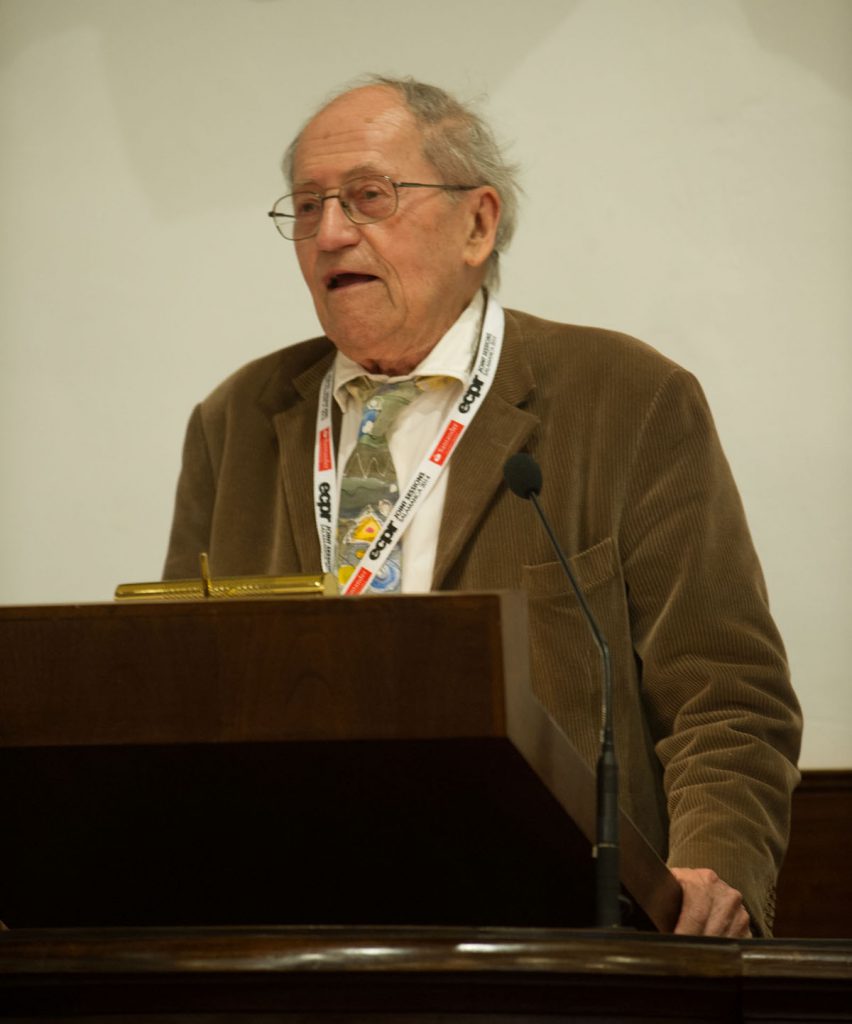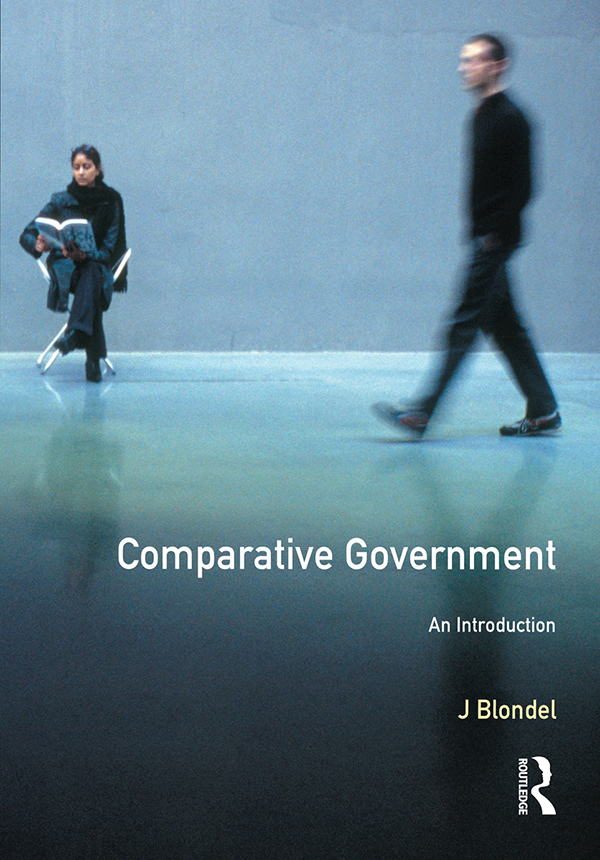Jean Blondel, comparative political scientist, founder of the University of Essex Department of Government and ECPR, died peacefully on Christmas Day 2022. Tracing his career, Ian Budge says he was a Napoleonic figure who reshaped European political science structurally and intellectually; and had a striking influence on the discipline throughout the world
Breaking through conventional boundaries, Jean Blondel went to Brazil in the mid-1950s to write his doctoral thesis. Instead of then pursuing a conventional career in France, he crossed to the new departments springing up in Britain. At the new and innovative University of Essex, established in 1962, he became the founding Professor of the Department of Politics (now the Department of Government).
Under Albert Sloman, a kindred spirit, the university was strongly research-oriented. Only ten large departments served to concentrate resources, and made an intellectual impact quickly. Building on this, Blondel was swift to take up the national bursaries for taught graduate courses, announced at short notice in 1965.
Departments elsewhere procrastinated, but only Blondel had the necessary flexibility to recruit 12 candidates from all quarters and put on impromptu courses for them. Most failed the year but budgetary inertia ensured that the studentships continued so long as there were applicants for them. At one stroke therefore, Essex acquired the largest graduate school in Britain. Initial results were unimpressive. However, the number and range of courses eventually attracted exceptional candidates.
Blondel himself was the Departmental dynamo. He poached me from Strathclyde University, along with rising heavyweights Anthony King and Brian Barry from elsewhere. He also used Essex’s unique tenure requirements to purge weak performers.
Jean Blondel immersed himself in any project which engaged his attention, and was determined to exploit every opportunity and resource to achieve his ends
Other unusual attributes were Blondel's immersion in any project which engaged his attention (usually three or four at any time), and a strategic conception of what the Department should do and where it should go (broadly, a quarter of the way towards the American model). Blondel was also determined to exploit every opportunity and resource to achieve these ends, regardless of others' hesitations.

In 2014, already well into his 80s, Jean Blondel stepped in after an eleventh-hour cancellation to deliver the Stein Rokkan Lecture at ECPR's Joint Sessions of Workshops in Salamanca
His initiatives are best illustrated by the annual Essex Summer School in Social Science Data Analysis, now past its half-century. A UNESCO grant for European departments to host a biennial month-long social science school financed the first event in 1968. Blondel lobbied for the grant, and followed up my own radical push for a methodological school based on Essex’s then-pioneering computer software. He went it alone with great success. Blondel also backed the summer school's continuance, with more external funding and a rapidly expanding number of participants.
The Essex summer school was crucial to Jean Blondel’s defining project, the European Consortium for Political Research. In 1970, the Ford Foundation was looking to build up social science in Europe. The nascent ECPR showed how Europe's political scientists were capable of organising themselves at continental level. This was crucial, because no real links existed between departments and individuals across countries – or even within them. ECPR now has over 300 institutional members in nearly 50 across the world; a global community of tens of thousands of scholars.

Voters, Parties and Leaders: The Social Fabric of British Politics (1963). Blondel's book introduced survey-based research to British readers in an original synthesis of poll data and community studies
The large grant Ford made to Blondel enabled him to knock heads together. He negotiated, cajoled and allured individuals and departments to support the Essex Summer School, vital in socialising younger political scientists to work together across international boundaries. He also attracted support for conferences, workshops, research groups, journals, grants, Europe-wide directories and course guides. An ever-open and active central office at Essex was dedicated to new initiatives.
Jean Blondel's evangelism and activism attracted support for conferences, workshops, research groups, journals, and grants
From zero in 1970, European political science emerged as a full-blown entity by 1980. Although he then retired as Director, Blondel’s evangelism and activism also spearheaded ECPR's rapid 1990s expansion across eastern Europe. At the time, this was a real lifeline for free research and democracy.
Blondel’s institutional achievements should not overshadow his intellectual ones. They were intertwined.
Voters, Parties and Leaders (1963) introduced survey-based research to British readers in an original synthesis of poll data and community studies. The book drew on traditions of French electoral geography and party organisational studies to fill the gaps polls did not cover. It provided an intellectual context for the research and teaching approach pioneered by the Department of Government at the University of Essex.
Similarly, his Comparative Government: an Introduction (1969) innovated with its revolutionary approach to treating each country as one unit in general discussions (and novel statistical analyses) of political processes and institutions across the world, rather than country-by-country descriptions difficult to compare. Such an approach is now standard, but Blondel pioneered it.

1969's Comparative Government: An Introduction innovated with its revolutionary approach to treating each country as one unit in general discussions of political processes and institutions across the world
In the 1980s, Blondel gained a new realisation of the limitations of survey-based research based on individuals. This revived professional interest in the role of institutions and collective processes in governmental policy-making. As a result, Blondel’s continuing research into these areas acquired major relevance in the context of the 'new institutionalism’.
Despite a life-threatening accident in later life, Jean Blondel continued his comparative research on governmental institutions, publishing his final book at the age of ninety
Despite a life-threatening accident in later life, he continued his comparative research on the structure and consequences of different governmental institutions. His research focused in particular on presidential government in Africa and Latin America. Jean Blondel published his last book when he was ninety. An example to us all!
Jean Blondel’s achievements remain as his monument. For young researchers, his works continue to provide a stimulus and point of entry to political analysis. They continue to inspire us, and to comfort the family who have done so much to support him.
With David McKay, I edited Developing Democracy (1994), a Festschrift for Jean's life and achievements. Chapter 2 offers a detailed contextual account. Find further contextual detail in my 2006 European Political Science article, Jean Blondel and the Development of European Political Science.